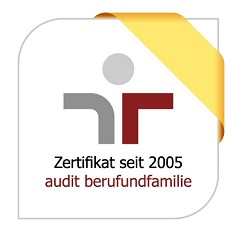PhD Student in Lipid Droplet Biology in Cancer
Kennziffer: 2024-0373
- Heidelberg
- Full-time
- Tumor Metabolism and Microenvironment

„Forschen für ein Leben ohne Krebs“ – das ist unsere Aufgabe am Deutschen Krebsforschungszentrum. Wir erforschen, wie Krebs entsteht, erfassen Krebsrisikofaktoren und suchen nach neuen Strategien, die verhindern, dass Menschen an Krebs erkranken. Wir entwickeln neue Methoden, mit denen Tumore präziser diagnostiziert und Krebspatient:innen erfolgreicher behandelt werden können. Jeder Beitrag zählt – ob in der Forschung, in der Administration oder der Infrastruktur. Das macht unsere tägliche Arbeit so bedeutungsvoll und spannend.
The Division of Tumor Metabolism and Microenvironment is seeking for the next possible date a
Altered metabolism is a hallmark of cancer and metabolic reprogramming in cancer supports the synthesis of macromolecules for cell growth and proliferation. However, it also generates selective vulnerabilities that can be exploited for cancer therapy.
Our group is interested in understanding how oncogenic signalling networks induce metabolic reprogramming in cancer. We have previously demonstrated a link between activation of the PI3-kinase/Akt/mTORC1 signalling axis and the control of lipid biosynthesis in cancer cells. The induction of lipid synthesis is crucial for the growth of cancer cells. More recently, it is emerging that altered lipid metabolism contributes to multiple cancer phenotypes, including cell survival, cell migration, cell-cell communication and immune interactions (Röhrig and Schulze, Nature Reviews Cancer, 2016).
To identify metabolic genes that are particularly important for the growth and survival of cancer cells, we apply functional genomic screening technologies (RNAi, CRISPR/Cas9). These are combined with cell culture systems that recreate the environmental conditions of the tumour microenvironment (3D culture, hypoxia, physiological media). We also apply direct in vivo screening approaches using transposon-based gene transfer. In addition, we perform targeted metabolomics and metabolic flux analysis with stable isotope labelled compounds to investigate the metabolic wiring in cancer cells.
Ihre Aufgaben:
- Analysis of lipid droplet dynamics and exploration of the contribution of fatty acid channeling to tumorigenesis and stress resistance in liver cancer
- Analysis of the role of oncogenic drivers on lipid droplet heterogeneity in liver cancer cells
- Investigation of lipid droplet dynamics in liver cancer
- Contribution to the training and teaching activities of the division
- Preparation of scientific presentations and publications
Ihr Profil:
- Master's degree in biology, biochemistry or related disciplines
- Previous experience in molecular biology and biochemical techniques
- Good knowledge of biochemistry
- FELASA certificate is an advantage
- Excellent command of written and oral English with proof of language proficiency (not required for applicants from EU or North America)
Unser Angebot:
- Hervorragende Rahmenbedingungen: modernste state-of-the-art Infrastruktur und Möglichkeit zum internationalen Austausch auf Spitzenniveau
- Zugang zu internationalen Forschungs-Netzwerken
- Doktorandengehalt mit den üblichen Sozialleistungen
- 30 Tage Urlaub
- Flexible Arbeitszeiten
- Möglichkeit zur Teilzeitarbeit
- Familienfreundliches Arbeitsumfeld
- Nachhaltig zur Arbeit: Vergünstigtes Deutschland-Jobticket
- Entfalten Sie Ihr volles Potenzial: gezieltes Training und Mentoring durch das DKFZ International PhD Program und den DKFZ Career Service
- Unser betriebliches Gesundheitsmanagement bietet ein ganzheitliches Angebot für Ihr Wohlbefinden
Sie sind interessiert?
Prof. Dr. Almut Schulze
Telefon: +49 6221 42-3423

